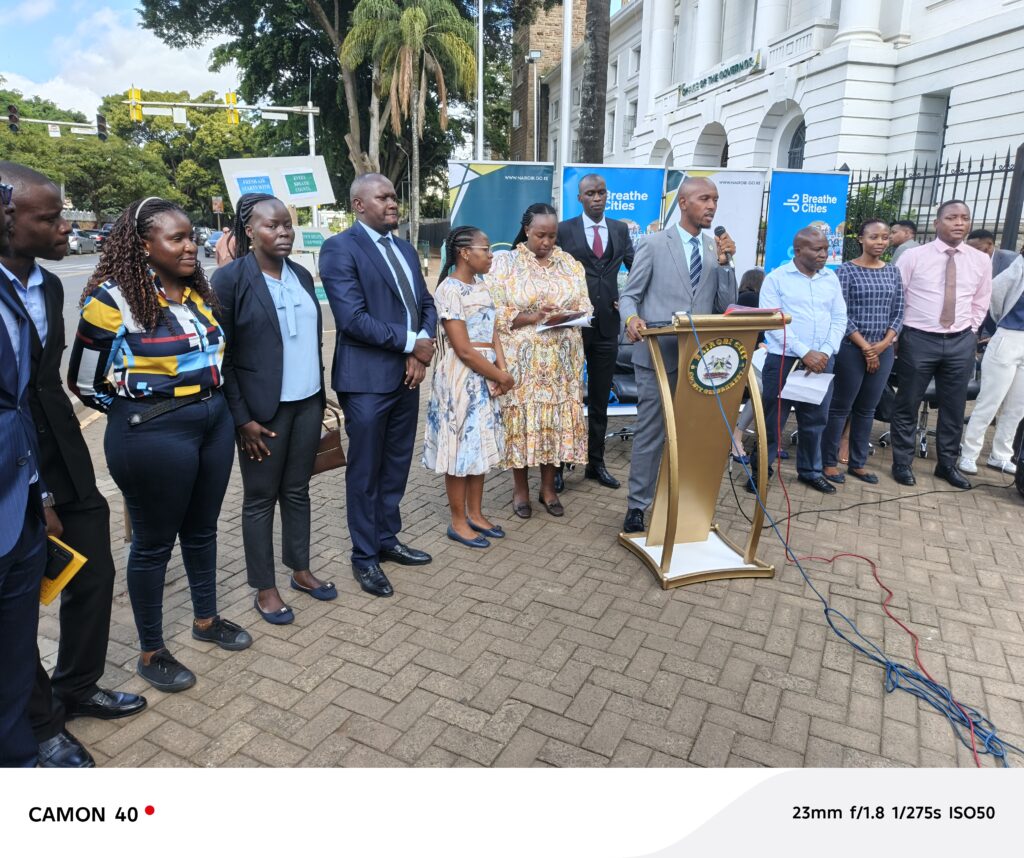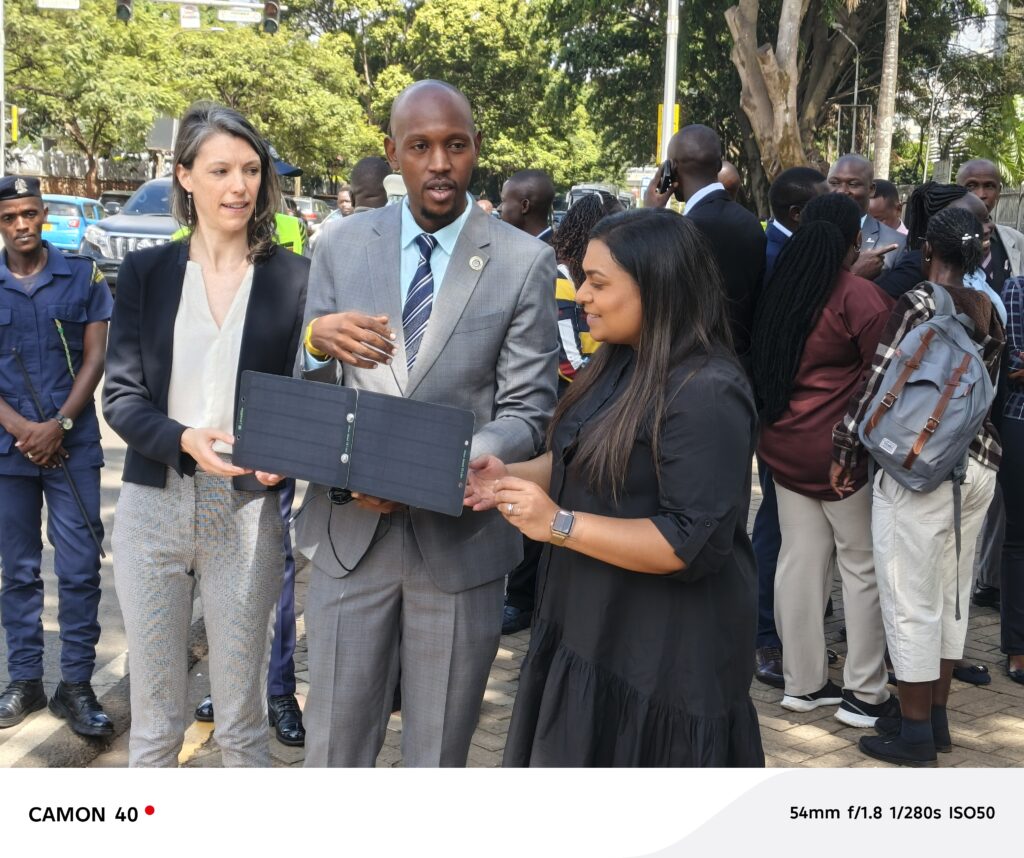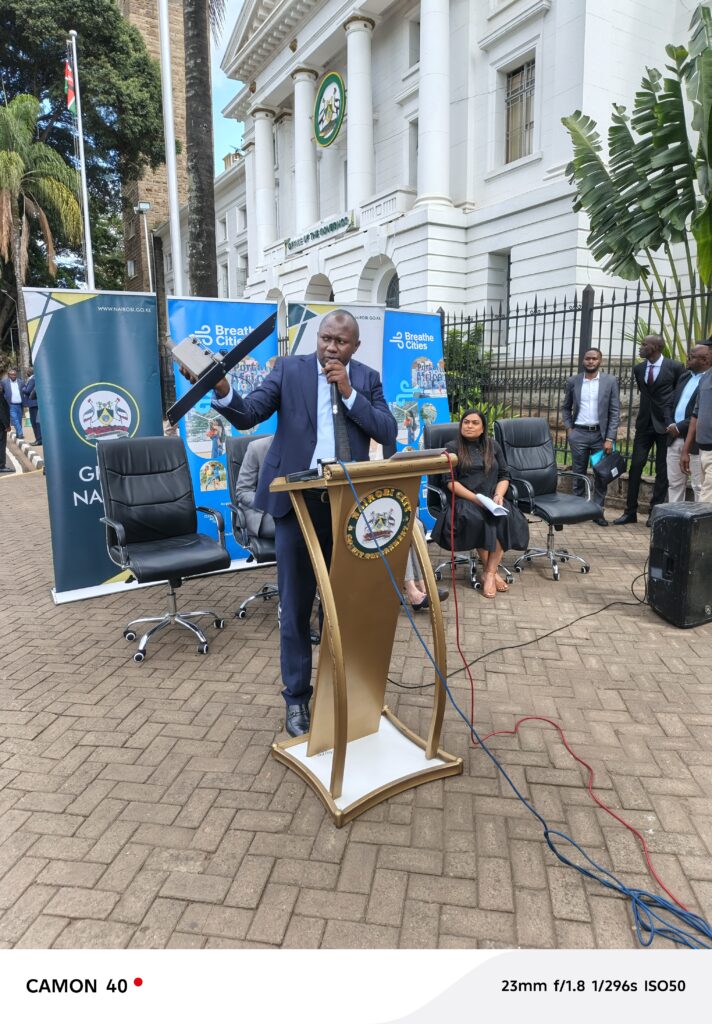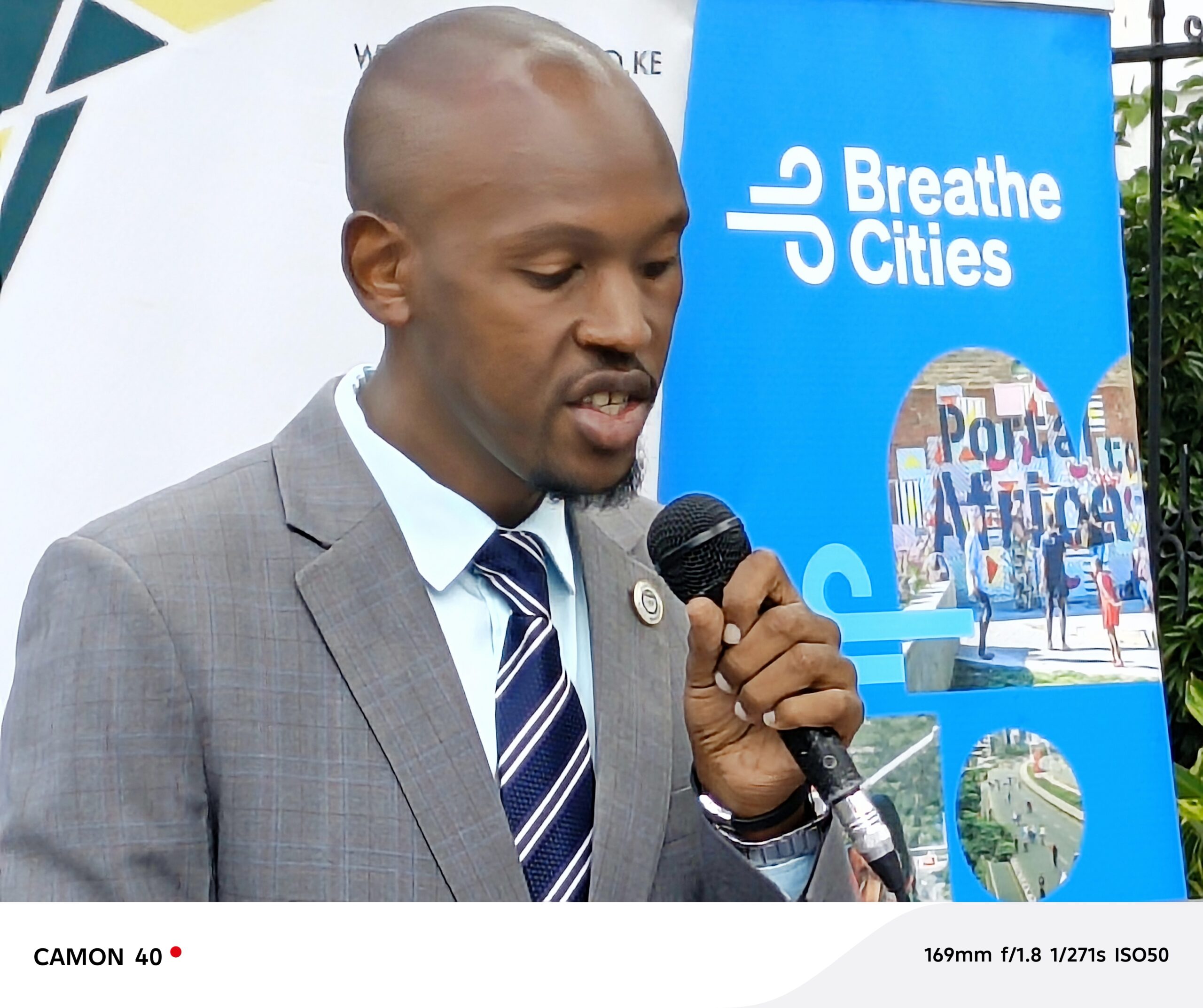
Nairobi Governor Johnson Sakaja in a press statement said that the milestone will ensure that every Nairobi resident has access to a cleaner, safer air.
“This milestone marks a turning point in our commitment to improving air quality management. By deploying a city-owned air quality monitoring network, we are taking bold, practical steps to ensure that every Nairobi resident has access to cleaner, safer air. This is a vital investment in the well-being of our people and the future of our city.”
Speaking in Nairobi on Wednesday during the launch, Maureen Njeri, Nairobi County Executive for Green Nairobi said that the 50 state of the art sensors will be deployed across the capital to tackle air pollution that has been a silent but deadly threat.
“Air pollution is an invisible killer, a silent assailant that relentlessly impacts our children’s developing lungs, erodes the health of our elderly, and diminishes the overall vitality of our beloved city, said Njeri. “For too long, we have operated with significant data gaps, hindrances that have regrettably limited our ability to act decisively and strategically against this pervasive threat.”
She further noted that the sensors are not mere gadgets but they are eyes and ears in the atmosphere. “They will help us track air quality at the neighborhood level, guiding our efforts with real data. For years, we’ve operated in the dark. Today, that changes.”
Further, Njeri said that the data collected will be a compass, enabling them to precisely expose pollution hotspots, inform and craft life-saving policies based on concrete evidence.
“In 2019 alone, air pollution was linked to approximately 2,500 premature deaths in the city. More recent data shows that average levels of harmful fine particles (PM2.5) in Nairobi are four times higher than the World Health Organization’s recommended levels,” said Njeri.

According to Geoffrey Mosiria, Chief Officer for Environment, Nairobi County, air pollution is more than just an environmental issue. “It affects our health, our economy, and the well-being of our most vulnerable citizens. Data from these sensors will help us take informed action enforcing regulations, strengthening policies, and targeting the worst-hit areas.”
The county, with support from the Clean Air Fund, has already installed 39 of the 50 sensors and completed initial testing. These low-cost devices will continuously monitor air quality across different parts of Nairobi, providing local authorities with reliable, up-to-date information.
The deployment is part of the Breathe Cities Nairobi initiative, a global partnership involving the Clean Air Fund, C40 Cities, and Bloomberg Philanthropies with a goal of reducing air pollution by 30% in participating cities by 2030, compared to 2019 levels.
Launched in Nairobi in September 2024, Breathe Cities also supports city officials with technical expertise to draft new air quality regulations and an Air Quality Action Plan. Nairobi is one of 14 cities globally benefitting from the program.

Dr. Victor Indasi, Kenya Lead for Breathe Cities, called the rollout “an inspiring milestone.” He noted, “This marks a new era of evidence-based environmental action for Nairobi. We are excited to see how this data will help shape cleaner air policies that truly make a difference.”
Air pollution already takes a heavy toll. According to a 2024 UNEP report, at least 268 deaths in Nairobi each year are directly linked to polluted air. Shockingly, around 10% of the city’s health budget goes toward treating air pollution-related illnesses.
“Cleaner air isn’t just about the environment it is about saving lives, reducing health costs, and improving quality of life,” said Njeri. “This network empowers us to act smarter and faster.”
As the sensors go live and the data starts rolling in, Nairobi’s next steps will focus on using this information to update regulations, raise public awareness, and prioritize clean air in urban planning.
Breathe Cities aims to prevent 55,000 premature deaths, avoid 111,000 new asthma cases in children, and save $147 billion globally through improved health and fewer emissions. Nairobi’s efforts contribute to this global mission and set an inspiring example for cities across Africa.
Mosiria also noted that the county is working to close all illegal dumping sites, which are major contributors to air pollution in Nairobi. “We have already shut down the illegal dumpsite along Likoni Road, commonly known as English Press.”


**herpafend official**
Herpafend is a natural wellness formula developed for individuals experiencing symptoms related to the herpes simplex virus. It is designed to help reduce the intensity and frequency of flare-ups while supporting the bodys immune defenses.
Your article helped me a lot, is there any more related content? Thanks!